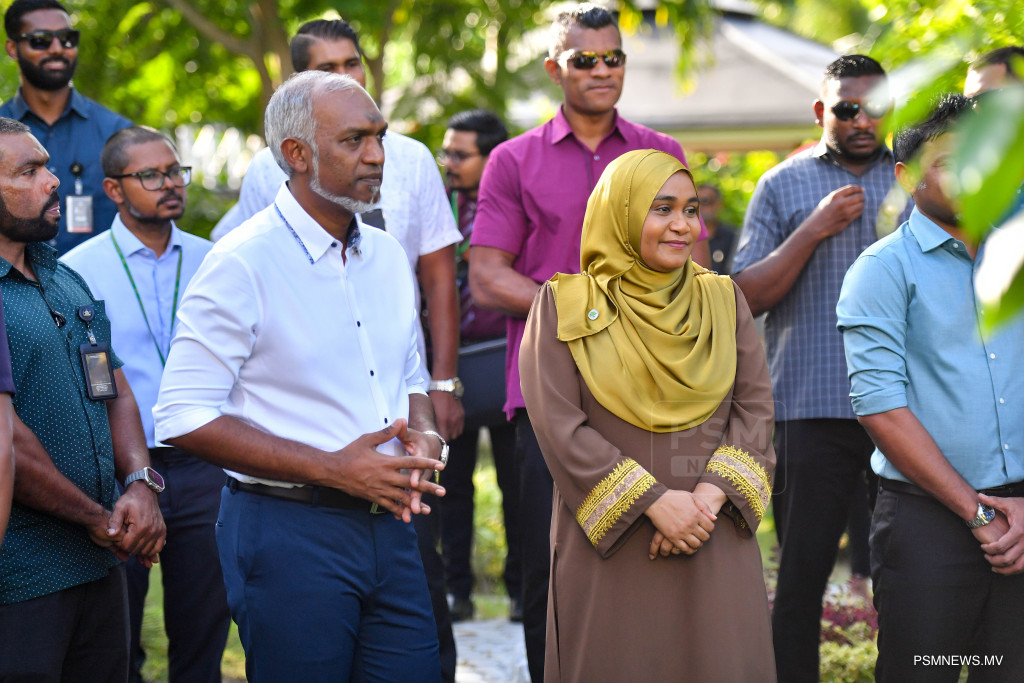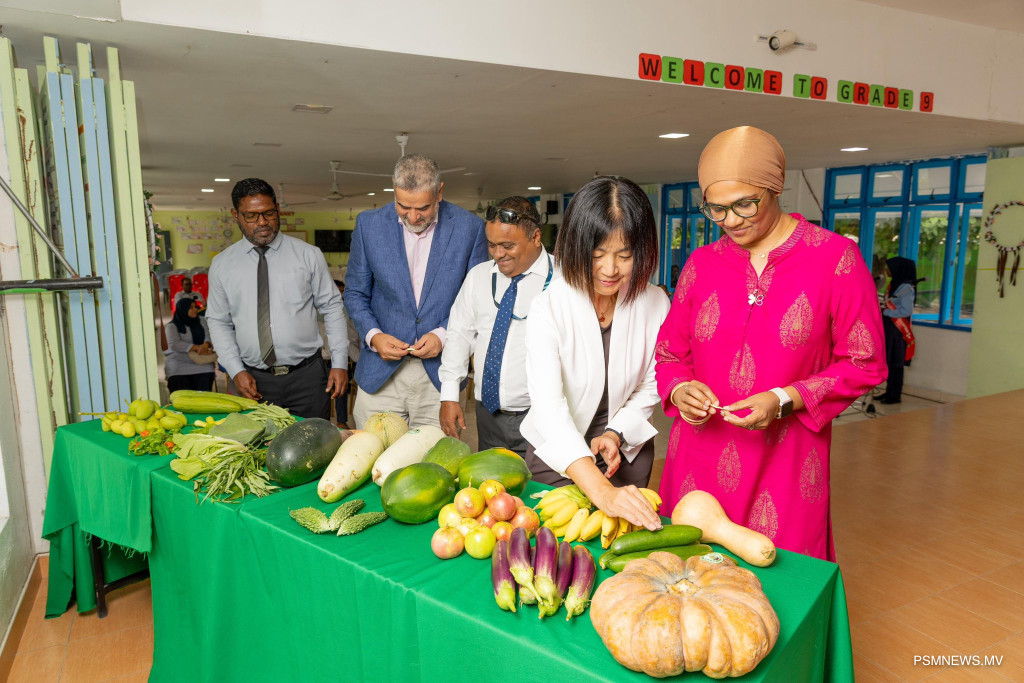
President Dr Mohamed Muizzu has identified agricultural expansion as a central priority of his administration, declaring that national food self-sufficiency is essential to reducing reliance on imports, lowering associated costs, and promoting healthier consumption. The announcement came in a social media post marking Farmers’ Day, where the president extended his good wishes to all those engaged in strengthening the agricultural sector.
President Muizzu has placed particular emphasis on elevating agriculture to the status of a recognised industry. His government has established a ministry dedicated exclusively to agricultural affairs, a move intended to give the sector institutional weight and direction.
"Our ancestors have already demonstrated that Maldivian soil is fertile and suitable for cultivating beneficial fruits, vegetables, grains, and root crops,"President Dr Mohamed Muizzu
The ministry is extending direct support to farmers, including training, tools, and other resources. The administration is also prioritising the development of infrastructure and facilities to improve the domestic marketing of agricultural products, aiming to create a more resilient supply chain.
The president’s strategy is anchored by a flagship initiative: a large-scale agricultural project in Uthuru Thilafalhu. Government officials expect the project to reduce the nation’s dependence on external food sources and to lower national expenditure on imports.
The administration has also stressed that self-sufficiency will ensure citizens have access to food items certified as healthy, linking the policy to both economic and public health outcomes.
President Muizzu framed his vision within the country’s agricultural heritage, noting that our ancestors had long demonstrated the fertility of the nation’s soil. He expressed hope that agriculture could be expanded to a level capable of ensuring comprehensive food security.
"Our ancestors have already demonstrated that Maldivian soil is fertile and suitable for cultivating beneficial fruits, vegetables, grains, and root crops," President Muizzu wrote on social media.
He continued: "I extend my sincere good wishes on Farmers' Day to all parties working diligently to advance and expand this industry, conveying the fervent hope that agriculture in the Maldives can be expanded sufficiently to ensure national self-sufficiency and the permanent establishment of food security."
The president’s remarks coincided with the annual observance of Farmers’ Day on 15 October. This year’s theme underscored the importance of collective effort, stressing the goal of better food and a more prosperous future.
Geographic challenges push Maldives to adopt new farming methods and train the next generation
In an address marking Farmers’ Day, Dr Maryam Mariya, the Minister of Agriculture and Animal Welfare, urged greater youth participation in agriculture, warning that the sector’s survival depends on its successful transfer to future generations.
Although the Maldivian economy is anchored by its marine resources, Minister Mariya stressed that agriculture remains indispensable to the nation’s future. She described it as central to achieving food security and ensuring sustainable economic development, adding that advancing the sector must be treated as a national priority.
National Farmers’ Day was first observed in the Maldives in 2009. This year’s commemoration coincides with World Food Day, marked annually on 16 October, under the Food and Agriculture Organization of the United Nations (FAO) theme: “Hand in Hand for Better Foods and a Better Future”.
Minister Mariya acknowledged the geographical constraints that hinder agricultural growth, including limited land availability and the salinity of sub-surface water tables. She noted, however, that farmers are actively devising innovative solutions to overcome these obstacles. Among the approaches gaining ground are hydroponics, vertical farming, and aeroponics, alongside efforts to promote environmentally sustainable practices.
“Considering the ongoing advancements within the agriculture industry, we are utilising methods such as hydroponics, vertical farming, and aeroponics, while simultaneously targeting environmentally friendly farming practices," Minister Mariya stated.
"Concurrently, enhancing the role of youth in this sector beyond its current capacity is crucial for establishing generational food security and ensuring agriculture is successfully passed on to future generations. In this regard, programmes introduced in schools to educate students on farming constitute a significant advancement toward this objective.”


Appeal for national cooperation underscores push to reduce imports and support farmers’ livelihoods
The Agriculture Ministry is pursuing wide-ranging initiatives to diversify and strengthen the sector. One of its priorities is the establishment of an agricultural laboratory to provide essential analysis and research capacity.
Efforts to bolster food security also include the distribution of plants to households, beginning with the northern atolls. Minister Mariya appealed to the public to allocate land on every island as a collective contribution to food security, urging national cooperation with the ministry in this endeavour.
"I appeal for a concerted effort in every Maldivian island: that land be designated as a cooperative contribution toward food security, and that the public collaborate with this ministry on this national undertaking," she said.
"Furthermore, achieving comprehensive national food security will remain challenging unless such efforts are implemented locally to ensure the food security of the residents within their respective islands."
Minister Mariya expressed her aspiration for the Maldives to become a model of innovative agricultural productivity, reducing reliance on imports while reinforcing domestic food security.
She acknowledged persistent supply chain challenges but pointed to collaborative efforts with the Maldives Transport and Contracting Company (MTCC) and Agro National Corporation to improve market access and distribution for farmers’ produce. She voiced confidence that sustainable arrangements would soon be in place to ensure farmers can reliably sell their products.
Underscoring the priority placed on agriculture by President Muizzu, Minister Mariya announced preparations to launch projects under Public-Private Partnerships (PPP). These initiatives are designed to address the most immediate needs of farmers on designated farming islands.
Concluding her address, Minister Mariya reflected on the broader purpose of national Farmers’ Day, calling for unity and shared responsibility. She expressed confidence that every Maldivian, from farmers to resorts and businesses, has a role to play in supporting the nation’s agricultural sector.
